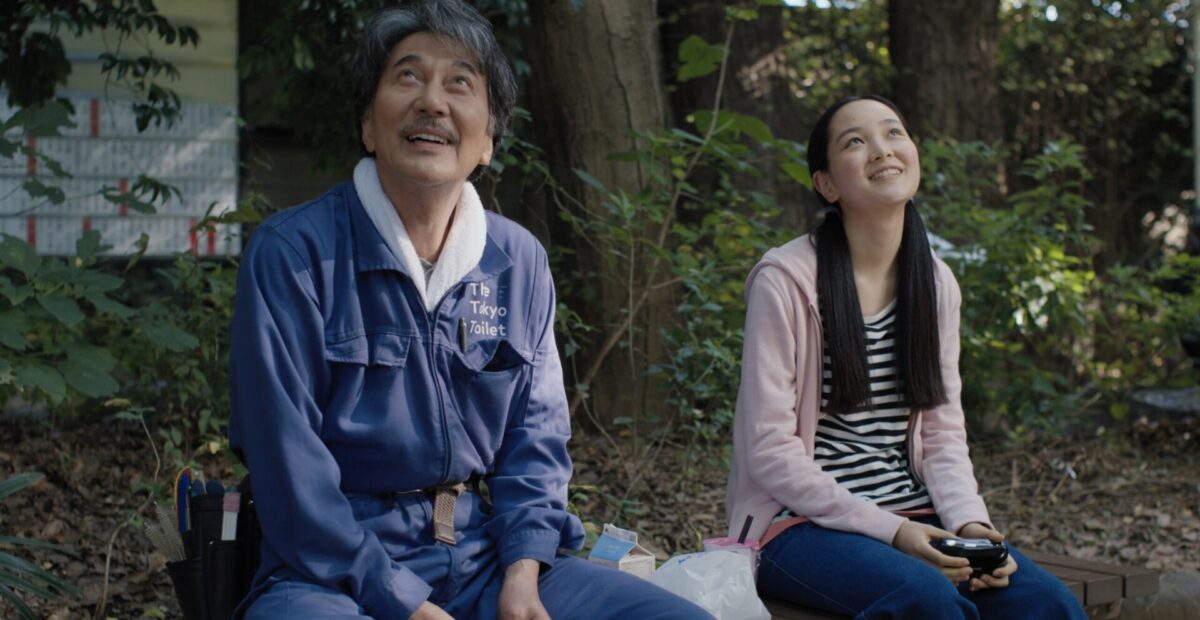
Watch
Perfect Days: days full of richness in Harayama’s life

Poetry in the ordinary; happiness despite harshness; harmony in acceptance; freedom in humility; moving forwards despite seeming to be going nowhere. There is all this, and much more, in the character of Harayama, the protagonist of this new, insightful film by Wim Wenders: ‘Perfect Days’, a jewel nominated for an Oscar.
Harayama’s days are more than perfect, they are happy. We see it in his face as he encounters the early morning sun or rain, opening his front door and breathing with satisfaction and a hint of a smile before taking up his daily routine, repetitive yet never the same.
Not alienating, but restful, Harayama, played magnificently by Kōji Yakusho (not surprisingly awarded best actor at the last Cannes Film Festival), is the silent, poetic protagonist of ‘Perfect Days’: by German master Wim Wenders, receiving an Oscar nomination for Japan (10 March 24), in the category of foreign language films.
The director’s work, in fact, is set entirely in Tokyo and tells the story of a man in his fifties, perhaps older, whose profession is to clean the city’s public toilets. He does not do it superficially, however. He never complains, carrying out his work with great diligence and commitment, looking after the smallest details. He makes the most of those places, seeing his work as a service, so ‘Perfect Days’, is not a film about metropolitan hardship or human degradation. There is no sarcasm intended in the title. It is not about the marginalised, those who come last, or their conditions; ‘Perfect Days’ is about those in the front line: the poets of everyday whose thoughts and feelings enlighten their anonymous, dreary lives.
With his eyes (and his camera), Harayama finds lyricism in the nature around him, even as he savours a simple picnic in the park. ‘Perfect Days’ is a tribute to those who know how to enrich their days with beauty, in the midst of harshness. The main character uses music and meaningful reading before sleep to help him, and the care of small houseplants in his home.
They are like companions who help him resist the temptation to feel imprisoned in a profession that is dull, unprestigious and not very well-paid. This bizarre, likeable character keeps the risk of idolising work at bay. There is much more to life, he seems to tell us, and the film which centres around him is a hymn to those who do not judge themselves negatively for doing menial, repetitive work, that has little social importance. ‘Perfect Days’ is a song to those who have learned to be content in themselves – Harayama himself has past wounds – yet do not refuse help to others in in need when they come to him for help: the reckless colleague who asks him for money; his niece who asks him for lodging and affection, after running away from home.
He is a man who sows peace in his own way, this gentleman who traverses the streets of Tokyo in a blue minibus, forever under the watch of a soaring tower that dominates the landscape, dwarfing this tiny humble figure. Yet, Harayama is not worn out; he has not let loneliness embitter him or numb him against the need for human relationships. In the end, we see in his wrinkled face, a close-up of many, unforgettable
emotions. We sense them clearly, despite so few words asthe film, powerfully conveys them through gestures and deeds. Harayama’s life seems to barely move. Yet everything is alive, bubbling in the calm, changing like the nature he photographs everyday. When he doesn’t use words, his body language speaks; the way he looks upon the natural, architectural and human landscape speaks. The looks he exchanges with the homeless man in the park are poetry within poetry, full of the empathy of someone who is alive. ‘Perfect Days’, is a taciturn film, but its sparse words, specific in their poignancy, are enough to reiterate its message : «another time is another time, now is now», Harayama’s words to his niece as he tries to explain to her that the secret to happiness lies in appreciating whatever life offers each day. The present must be lived without anxiety for the future and free from being imprisoned by idols.
Poor yet rich, Harayama, is able to link his story to freedom. He has learned to receive the blessings that life gives him; even his unglamorous job is a means to build authentic relationships with each stranger he meets, blessings in the life of someone so humble, yet so full of vitality. In this way, each day becomes an intimate but true celebration; it is his ability to transform acceptance into harmony, and uplift the repetitiveness of life, that makes his days ‘ perfect’.






